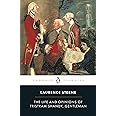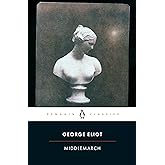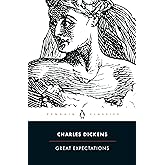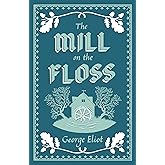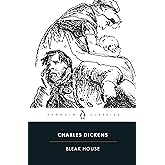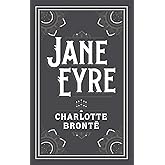
Download the free Kindle app and start reading Kindle books instantly on your smartphone, tablet or computer—no Kindle device required.
Read instantly on your browser with Kindle for Web.
Using your mobile phone camera, scan the code below and download the Kindle app.



 Audible sample
Audible sample Mill On The Floss, The Paperback – 5 May 2003
You can select and apply an appropriate plan based on your cart value at checkout.
-
Pay at Your PaceZip
| Account type | Interest |
|---|---|
| Zip Pay | Always interest free^ |
| Zip Money | 12 mo interest free,
25.9% p.a. thereafter* |
^Zip Pay: This is a credit product and is interest free. Minimum monthly repayments are required. A monthly account fee of $9.95 is charged by Zip and is subject to change. Pay your closing balance in full by the due date each month and Zip will waive the fee. Available to approved applicants only and subject to completion of satisfactory credit assessment by Zip. Other charges may be payable. Fees and charges subject to change. Zip T&Cs apply. T&Cs available on application. See your Zip contract for further details. Credit provided by Zip Money Payments Pty Ltd (ABN 58 164 440 993), Australian Credit Licence Number 441878.
*Zip Money: Interest free term subject to minimum spend and promotional partner offer. Available to approved applicants only and subject to completion of satisfactory credit check. The repayment advertised will repay the transaction balance within the advertised interest free period. A monthly account fee of $9.95 applies and a one off establishment fee may apply for new customers. Under the contract, minimum monthly repayments are required and will vary depending on your credit limit. Instalment plans split eligible purchases of $300 and above into equal repayments within the interest free period. If you turn off instalments, transactions will be reverted to the minimum monthly repayment. Paying only the minimum monthly repayment may not necessarily repay a purchase within the interest free period. Any balance outstanding at the expiry of the interest free period will be charged at the standard variable interest rate, 25.9% per annum, as at 1 June 2023. Other charges may be payable, see T&Cs. Interest, fees and charges are subject to change. Terms & Conditions apply and are available on application. See your contract for further details. Credit provided by ZipMoney Payments Pty Ltd (ABN 58 164 440 993), Australian Credit Licence Number (441878).
Purchase options and add-ons
In this edition writer and critic A. S. Byatt provides full explanatory notes and an introduction relating Mill on the Floss to George Eliot's own life and times.
- ISBN-109780141439624
- ISBN-13978-0141439624
- Edition1st
- PublisherPenguin
- Publication date5 May 2003
- LanguageEnglish
- Dimensions12.98 x 2.77 x 19.71 cm
- Print length640 pages
Frequently bought together
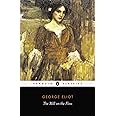
Customers who viewed this item also viewed
From the brand

-
Pre-order Now
-
Worth the Hype
-
Cozy Colouring
-
New Releases
-
Children's Books
-
Bestsellers
-
Cookbooks
-
Health and Wellbeing
-
Penguin Classics
Product description
Review
--Virginia Woolf
About the Author
Having lost her Christian faith and thereby alienated her family, she moved to London and met Herbert Spencer (whom she nearly married, only he found her too 'morbidly intellectual') and the versatile man-of-letters George Henry Lewes. Lewes was separated from his wife, but with no possibility of divorce. In 1854 he and Marian decided to live together, and did so until Lewes's death in 1878. It was he who encouraged her to turn from philosophy and journalism to fiction, and during those years, under the name of George Eliot, she wrote Scenes of Clerical Life, Adam Bede, The Mill on the Floss, Silas Marner, Romola, Felix Holt, Middlemarch and Daniel Deronda, as well as numerous essays, articles and reviews.
George Eliot died in 1880, only
Product details
- ASIN : 0141439629
- Publisher : Penguin
- Publication date : 5 May 2003
- Edition : 1st
- Language : English
- Print length : 640 pages
- ISBN-10 : 9780141439624
- ISBN-13 : 978-0141439624
- Item weight : 440 g
- Dimensions : 12.98 x 2.77 x 19.71 cm
- Lexile measure : 1240L
- Best Sellers Rank: 36,929 in Books (See Top 100 in Books)
- 631 in Classic Literature & Fiction
- 2,328 in Family Life Fiction (Books)
- 3,281 in Contemporary Literature & Fiction
- Customer Reviews:
About the author

Mary Ann Evans (22 November 1819 - 22 December 1880; alternatively "Mary Anne" or "Marian"), known by her pen name George Eliot, was an English novelist, poet, journalist, translator and one of the leading writers of the Victorian era. She is the author of seven novels, including Adam Bede (1859), The Mill on the Floss (1860), Silas Marner (1861), Felix Holt, the Radical (1866), Middlemarch (1871-72), and Daniel Deronda (1876), most of them set in provincial England and known for their realism and psychological insight.
She used a male pen name, she said, to ensure her works would be taken seriously. Female authors were published under their own names during Eliot's life, but she wanted to escape the stereotype of women only writing lighthearted romances. She also wished to have her fiction judged separately from her already extensive and widely known work as an editor and critic. An additional factor in her use of a pen name may have been a desire to shield her private life from public scrutiny and to prevent scandals attending her relationship with the married George Henry Lewes, with whom she lived for over 20 years.
Her 1872 work Middlemarch has been described by Martin Amis and Julian Barnes as the greatest novel in the English language.
Bio from Wikipedia, the free encyclopedia. Photo by Swiss artist Alexandre-Louis-François d'Albert-Durade (1804-86) [Public Domain], via English Wikipedia.
Customer reviews
Reviews with images
Tiny font! Unreadable 😢
Top reviews from Australia
There was a problem filtering reviews. Please reload the page.
- Reviewed in Australia on 21 January 2020Verified PurchaseOne of the best books i have ever read. It plunged the depths of human philosophy. ethics, mortality and philosophy. The characters showed richness and depth. I was thoroughly engrossed in the lovely and poetic way the author allowed the story and the characters unfold.
- Reviewed in Australia on 15 August 2017Verified PurchaseReally enjoyed listening to this book on audio. Loved listening to the expressive old English language.
- Reviewed in Australia on 30 April 2025Verified PurchaseThis edition has EXTREMELY small print. I have never seen a book with such small print before. The font is actually smaller than the ingredients list on food items, as my picture shows: I’ve placed the book next to a grocery item to compare. I would guess this is a self-published book, where someone been able to download the text of this classic book because it is no longer under copyright, and has made their own version of it on Amazon to make some money. A reputable publishing house would never print a book with such a tiny font. To me it’s unreadable. So just be warned that you may be cross-eyes or blind by the time you’ve read this, if you can read it at all.
 This edition has EXTREMELY small print. I have never seen a book with such small print before. The font is actually smaller than the ingredients list on food items, as my picture shows: I’ve placed the book next to a grocery item to compare. I would guess this is a self-published book, where someone been able to download the text of this classic book because it is no longer under copyright, and has made their own version of it on Amazon to make some money. A reputable publishing house would never print a book with such a tiny font. To me it’s unreadable. So just be warned that you may be cross-eyes or blind by the time you’ve read this, if you can read it at all.
This edition has EXTREMELY small print. I have never seen a book with such small print before. The font is actually smaller than the ingredients list on food items, as my picture shows: I’ve placed the book next to a grocery item to compare. I would guess this is a self-published book, where someone been able to download the text of this classic book because it is no longer under copyright, and has made their own version of it on Amazon to make some money. A reputable publishing house would never print a book with such a tiny font. To me it’s unreadable. So just be warned that you may be cross-eyes or blind by the time you’ve read this, if you can read it at all.
Images in this review
- Reviewed in Australia on 22 September 2014Verified PurchaseSad,slow and melancholy a terrible story with an even worse ending.Pick something else.Was the book equilivant of that Hungerian tune that every time it is played on air it triggers several suicides.Sad Sad sad.
Top reviews from other countries
-
 naokopiReviewed in Japan on 13 November 2011
naokopiReviewed in Japan on 13 November 20115.0 out of 5 stars アイリーン・アトキンズによる朗読CD(完全版)
Verified Purchaseアイリーン・アトキンズによる朗読CD(完全版:Unabridged)について。
CD16枚で約19時間20分。
彼女の静かな落ち着いた声の朗読のおかげで、寝る前でも
ゆっくり聞くことができます。
静かですが、力のある声です。
登場人物毎に声や話し方を変えるので、誰が話者かは分かります。
朗読者の声や話し方、スピードに不安や疑問があれば、版元のAudiogoのサイトで
試聴ができるので、まずはそちらを試してみて下さい。
ただし、試聴できるのは、最初の部分なので、会話が含まれていたかどうか・・・。
でも、朗読者の声の感じなどは分かるので、十分でしょう。
それなりに長い小説なので、それが約20時間で読める、というのは有り難いです。
また、文章を読んでるだけだと分かりにくい、感情なども分かりやすいです。
私にはとてもよかったです。
-
 cdonadilleReviewed in France on 4 November 2020
cdonadilleReviewed in France on 4 November 20205.0 out of 5 stars Roman intimiste
Verified PurchaseGeorge Eliot décrit avec autant d'aisance les paysages de la campagne anglaise et le paysage intérieur des émotions.
 EmmaReviewed in the United States on 25 May 2015
EmmaReviewed in the United States on 25 May 20155.0 out of 5 stars So Many Books in One
Verified Purchase--Spoilers
I was struck senseless by this book. As much as I have enjoyed other books from this era, I somehow could not anticipate a novel of 1860 would feel so contemporary. In the greatness and insipidness of human character, the grinding realities of property and class, and the complexities of family relationships.
I am not sure if I am heartened or depressed to discover how little has changed. This book had me riotously laughing, lying awake worrying over Maggie and Tom, and rereading passages in sheer awe of Evans' powers of observation.
All of this, though, for the first 2/3 of the book. Which marked some of the very finest reading I've ever stumbled across. I was surprised then, to find the last 1/3 rather loathsome. We had already experienced a slow build of several characters, the move from childhood to adulthood, scandal, destitution, alienation, oaths, violence, comedic side shows, sickness, death, riches, and changes of fortune. It was really quite enough for any one narrative. But all of this seems tossed aside when Evans decides to make this a love story, and not any love story, but one indulging in every miserable glance and half-glance and thought of a glance, wallowing in the depressed entanglements from every conceivable angle. I felt I lost Maggie completely in this storyline. Earlier she was marked by her intellect and spirit, but by the end we only hear of her looks and conscience. And while earlier Evans was making a point of how Maggie's life was circumvented by her gender, she seems to become a bit infatuated by Maggie's beauty herself and abandons the more interesting components of her character. If this book is autobiographical it is all the more curious, as Evans herself never so succumbed to the opinion of the petty masses, even if they plagued her. I also lost Evans' voice in the final part of the book, which abandoned its sense of humor and prior acerbic distance from human foibles.
And when the misery of this plotline is thoroughly wrung out, so no drop remains to fall on its numb readers, Evan literally brings in a flood to drown out all other senses. I actually feel cheated of having all the earlier characters—with their mad idiosyncrasies and turns of speech—so meanly snatched away so all those pages would be crowded with the stupid man Stephen Guest. I think Aunt Glegg is bitter to have been denied some last words, too.
And it really is those character portraits that continue to haunt me, in the best way. For as irritating and narrow-minded as some persons were, they were at all times believable, and never wholly despicable. They make some of the best portraits in English literature, as Evans seems to have circled her characters with equal parts ruthlessness and tolerance. I sensed an understanding—at times made explicit—that a human can never escape her peculiar personality and capacity, but only hope they will meet kindly with fate. Which I find one of the most fascinating elements of this book, one that has already made me turn over some of my views on equally confounding people I have encountered in 2015.
The way money determines a person's reality and mood is another brilliantly exposed theme. My favorite passage is in book four: "But then, good society has its claret and its velvet-carpets, its dinner-engagements six weeks deep, its opera and its faëry ballrooms; rides off its ennui on thoroughbred horses, lounges at the club, has to keep clear of crinoline vortices, gets its science done by Faraday, and its religion by the superior clergy who are to be met in the best houses: how should it have time or need for belief and emphasis? But good society, floated on gossamer wings of light irony, is of very expensive production; requiring nothing less than a wide and arduous national life condensed in unfragrant deafening factories, cramping itself in mines, sweating at furnaces, grinding, hammering, weaving under more or less oppression of carbonic acid—or else, spread over sheepwalks, and scattered in lonely houses and huts on the clayey or or chalky corn-lands, where the rainy days look dreary. ... Under such circumstances, there are many among its myriads of souls who have absolutely needed an emphatic belief: life in this unpleasurable shape demanding some solution even to unspeculative minds."
Which is why I will now turn my attentions to "Felix Holt, The Radical," and see if Evans elsewhere fulfilled the political promise that was set forth but never delivered here. For whatever mad brilliance and disappointment this book offers, I end it feeling thoroughly obsessed with Mary Ann Evans, and wondering how I lived so long without her. Thus begins a summer of George Eliot.
 Felix the catReviewed in the United Kingdom on 21 September 2024
Felix the catReviewed in the United Kingdom on 21 September 20245.0 out of 5 stars a great read
Verified PurchaseI enjoyed the story. I never realised that George Elliot is a very funny writer. There were some laugh out loud moments as she describes the Tulliver family and the four sisters. The characters are complex and it is easy to identify with their problems and concerns. I will definitely read more Elliot






